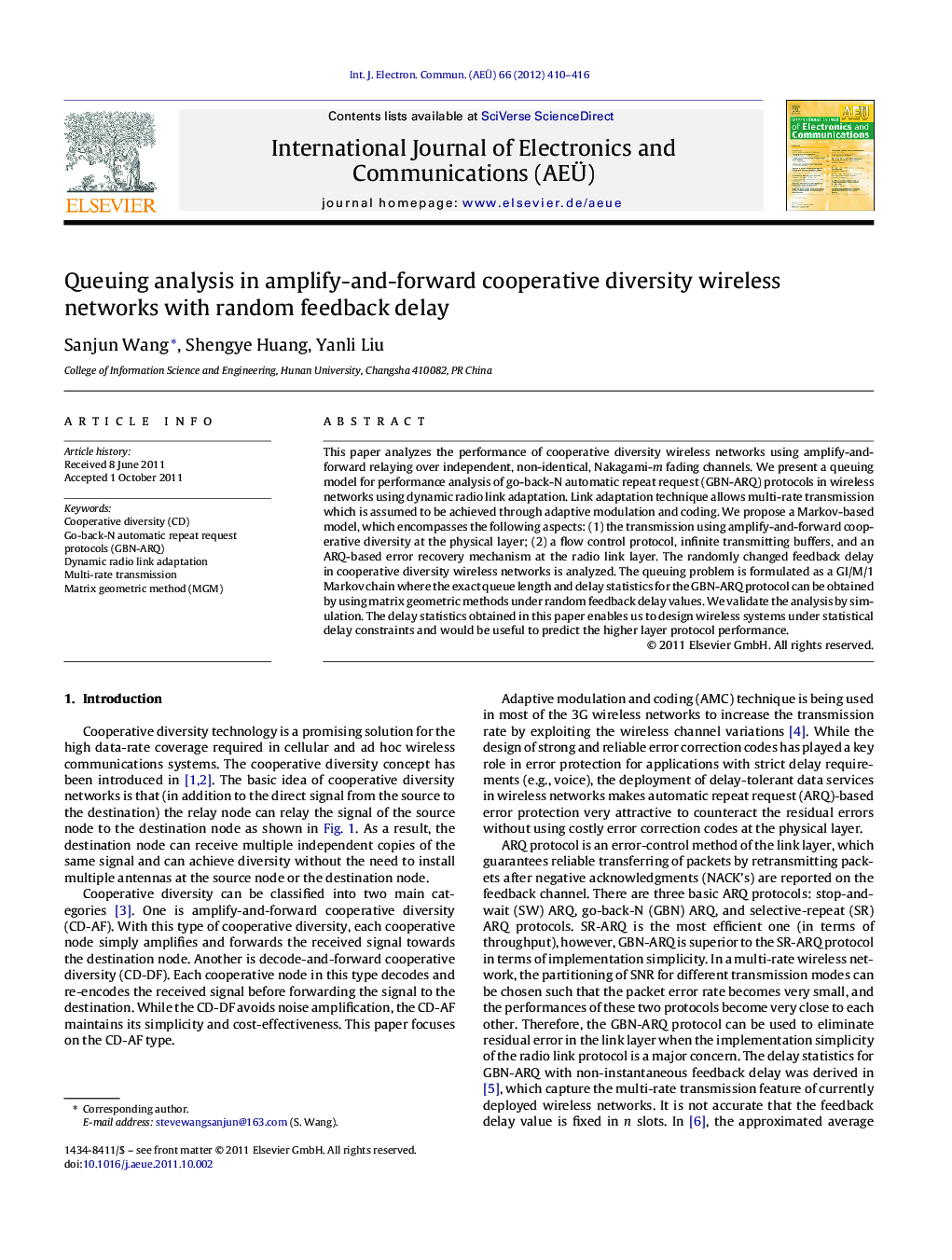| Article ID | Journal | Published Year | Pages | File Type |
|---|---|---|---|---|
| 449093 | AEU - International Journal of Electronics and Communications | 2012 | 7 Pages |
This paper analyzes the performance of cooperative diversity wireless networks using amplify-and-forward relaying over independent, non-identical, Nakagami-m fading channels. We present a queuing model for performance analysis of go-back-N automatic repeat request (GBN-ARQ) protocols in wireless networks using dynamic radio link adaptation. Link adaptation technique allows multi-rate transmission which is assumed to be achieved through adaptive modulation and coding. We propose a Markov-based model, which encompasses the following aspects: (1) the transmission using amplify-and-forward cooperative diversity at the physical layer; (2) a flow control protocol, infinite transmitting buffers, and an ARQ-based error recovery mechanism at the radio link layer. The randomly changed feedback delay in cooperative diversity wireless networks is analyzed. The queuing problem is formulated as a GI/M/1 Markov chain where the exact queue length and delay statistics for the GBN-ARQ protocol can be obtained by using matrix geometric methods under random feedback delay values. We validate the analysis by simulation. The delay statistics obtained in this paper enables us to design wireless systems under statistical delay constraints and would be useful to predict the higher layer protocol performance.
